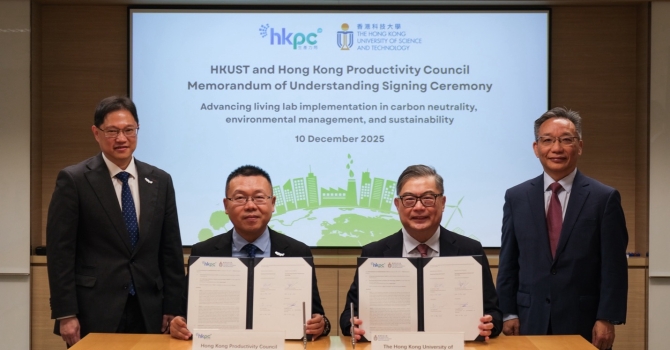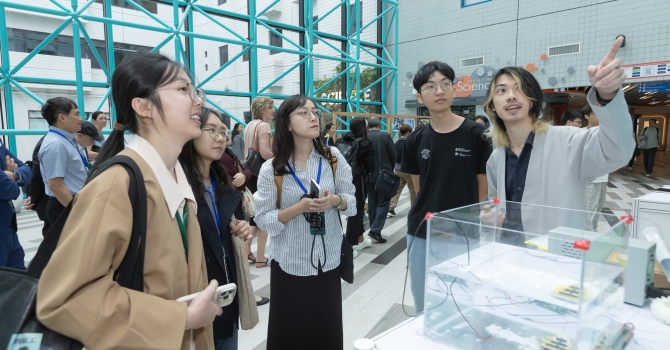Driving Sustainable Management: HKUST’s Smart Energy Meter System
HKUST has a comprehensive energy management strategy that invests in energy efficiency, promoting renewable energy production, and exploring innovative solutions to benefit both the campus and the wider community. In a recent study collaboratively published by our academics and campus operation offices, HKUST’s Smart Energy Meter System was introduced as a precise and holistic tool for campus electricity management and research.
The system is supported by more than 1400 smart meters deployed across 20 buildings – including research, utility, residential, recreational, and cultural facilities. The real-time energy consumption data is monitored and displayed on a publicly accessible dashboard on our website. This open-source database serves as a valuable resource for various research tasks, including load pattern recognition, fault detection, demand response strategies, and load forecasting, guiding us in implementing practical solutions for more efficient energy management.
To better manage all the energy data across the campus, the campus has been divided into 104 Energy Zones. This approach offers several benefits:
- Precisely monitored and analyzed data: By segmenting the campus into smaller areas, energy usage in each zone can be more precisely monitored and analyzed, enabling the identification and resolution of energy wastage in specific areas.
- Targeted energy-saving measures: Granular management allows for the implementation of targeted energy-saving measures based on the unique consumption characteristics.
- Timely interventions: By managing the campus in smaller sections, any issues of abnormal energy consumption can be quickly located and addressed, facilitating timely interventions.
While meticulous efforts are made to clean and organize the data, occasional errors and missing data remain a challenge. Data quality is paramount in our energy management efforts, where detailed analysis has revealed a correlation between data accuracy and the significance of the building. While landmark buildings like the Shaw Auditorium maintain high data quality standards, strategies are in place to address data quality issues in less prominent buildings through enhanced maintenance practices, resampling, error correction, and outlier removal, ensuring the reliability and accuracy of energy consumption data.
By leveraging data-driven insights and advanced metering technologies, HKUST is not only supporting operational efficiency but also serving valuable resources for academic research. Through these initiatives, we hope to set a new standard for sustainable energy management and foster a culture of environmental responsibility and innovation.



